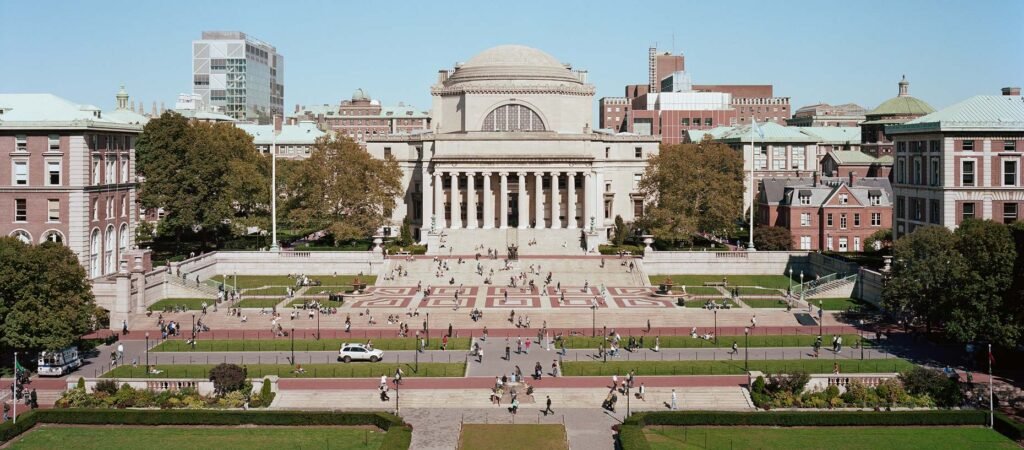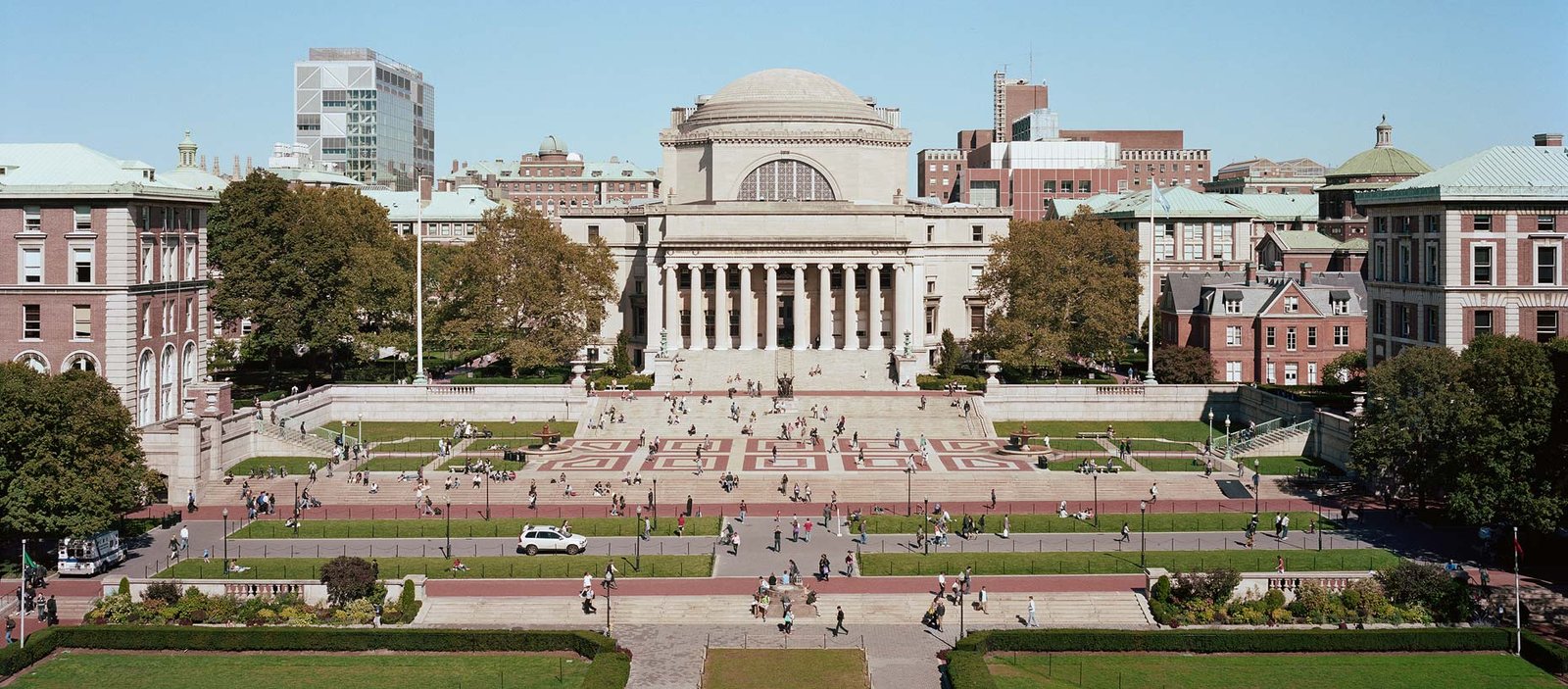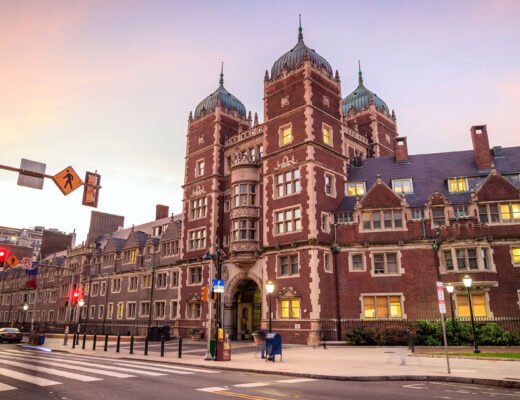Columbia College, situated in the core of New York City, is one of the most established and esteemed foundations of advanced education in the US. Laid out in 1754, Columbia has a rich history that mirrors the development of American schooling and society. This article digs into Columbia’s experiences, scholastic projects, grounds life, prominent graduated class, research drives, and its effect on the worldwide stage. Columbia University
The History of Columbia University
Founding and Early Years Columbia University
Columbia College was initially established as Ruler’s School by imperial sanction from Lord George II of Incredible England. The school was laid out to give training in light of Edification beliefs, zeroing in on human sciences and sciences. The primary classes were held in a vestry room at Trinity Church in Manhattan, with just eight understudies and one employee, Samuel Johnson. In 1784, following the American Upheaval, the school was renamed Columbia School. This change represented another character lined up with the upsides of the rising country. Under the initiative of powerful figures, for example, Alexander Hamilton and John Jay, Columbia started to flourish as a middle for higher learning.

Expansion and Development
All through the nineteenth hundred years, Columbia proceeded to develop and advance. In 1896, the organization moved to its ongoing area in Morningside Levels, where it extended its offices and scholastic contributions. The new grounds were planned by the building firm McKim, Mead, and White and highlighted a mix of traditional and current styles. The college went through huge changes during this period, including the foundation of different schools like the School of Doctors and Specialists (1767), the School of Regulation (1858), and the School of Design (1864). These improvements situated Columbia as a forerunner in examination and expert schooling.
Modern Era Columbia University
In the next 100 years, Columbia College set its standing as a chief exploration organization. It became known for its commitment to different fields, including science, humanities, sociologies, and business. The college assumed an urgent part during The Second Great War by adding to military exploration efforts. Columbia’s Main subjects were laid out during this time, underlining expansive-based training that supports decisive reasoning and scholarly commitment. This educational program is a sign of the undergrad experience at Columbia today.
Academic Programs Columbia University
Undergraduate Education Columbia University
Columbia School offers a different scope of undergrad programs across different disciplines. Understudies can browse north of 80 majors and minors in fields, for example,
- Humanities: Writing, Reasoning, History
- Social Sciences: Political Theory, Social science, Human studies
- Natural Sciences: Science, Science, Physical science
- Engineering: Structural Designing, Electrical Designing
- Business: Business The board (in a joint effort with Columbia Business college)
The Central subjects is an exceptional part of Columbia’s undergrad instruction. It requires all understudies to take courses in writing, reasoning, history, craftsmanship history, music, science, and composing. This interdisciplinary methodology encourages decisive reasoning and assists understudies with fostering a balanced viewpoint.
Graduate Programs
Columbia University also offers an extensive array of graduate programs through its various schools:
- Columbia Law School: Known for its rigorous curriculum and distinguished faculty.
- Columbia Business School: Offers MBA programs that emphasize leadership and entrepreneurship.
- Mailman School of Public Health: Focuses on global health issues and public policy.
- School of International and Public Affairs (SIPA): Prepares students for careers in international relations and public service.
- Graduate School of Arts and Sciences: Offers advanced degrees in humanities and social sciences.
These undertakings attract students from around the world who attempt to push their knowledge and capacities in their different fields.
Campus Life
Student Organizations
Columbia College has a dynamic grounds existence with north of 500 understudy associations taking care of different interests.These integrate social clubs, academic social orders, organization affiliations, and brandishing get-togethers. Students are asked to partake in extracurricular activities that redesign their educational experience.
Residential Life
The college gives different lodging choices to understudies. Green beans are ordinarily relegated to home lobbies that cultivate local area residing. Upperclassmen approach lofts and suites that offer more freedom while as yet being essential for the grounds local area.
Athletics
Columbia’s athletic program highlights Division I sports groups known as the Columbia Lions. The college advances actual wellness through different intramural games and sporting exercises accessible at Avoid Wellness Center.
Support Services
- Academic Advising: The James H. and Christine Turk Berick Center for Student Advising provides guidance throughout students’ academic journeys.
- Career Services: The Center for Career Education assists students with career planning and job placement.
- Health Services: Columbia Health provides medical care, mental health resources, and wellness programs to support student well-being.
Notable Alumni
Columbia College has created various recognized graduated class who have made critical commitments across different areas:
- Barack Obama – The 44th Leader of the US moved on from Columbia School in 1983.
- Ruth Bader Ginsburg – The late U.S. High Court Equity acquired her regulation degree from Columbia Graduate school in 1959.
- Warren Buffett – Eminent financial backer and humanitarian accepted his MBA from Columbia Business college in 1951.
- Madeleine Albright – The primary female Secretary of State moved on from Columbia College in 1959.
- Franklin D. Roosevelt – The 32nd President went to Columbia Graduate school however didn’t graduate.
These individuals exemplify the impact that a Columbia education can have on one’s career trajectory.
Research Initiatives
A Leader in Research
Columbia College is perceived as one of the main examination establishments around the world. It reliably positions among the top colleges for research yield across different fields.
Key Research Areas
- Health Sciences: Through its Clinical Center and Postal carrier School of General Wellbeing, Columbia conducts historic examination on general medical problems going from irresistible illnesses to emotional well-being.
- Environmental Studies: The Earth Establishment at Columbia centers around feasible advancement arrangements tending to environmental change difficulties worldwide.
- Sociologies: Scientists at SIPA inspect squeezing social issues like destitution easing, common freedoms backing, and global relations.
- Innovation Development: The Information Science Foundation advances interdisciplinary exploration that applies information science strategies across different spaces.
Collaborative Research Environment
Columbia cultivates cooperation among specialists through interdisciplinary focuses that unite specialists from various fields to really handle complex issues.
Global Impact Columbia University
International Partnerships Columbia University
Columbia College keeps up with associations with organizations overall to advance worldwide schooling drives. These planned endeavors work with student exchanges, joint investigation ventures, and social exchanges that improve the two representatives and students’ experiences.
Commitment to Social Responsibility
Columbia underscores social obligation through different effort programs pointed toward tending to cultural difficulties locally and universally. Drives incorporate local area administration projects drove by understudies who look to have a constructive outcome on society. Columbia University
Conclusion
Columbia College remains as a guide of scholastic greatness with its rich history established in moderate standards. Its obligation to encouraging development through research while giving a balanced training plans understudies to become pioneers who can explore complex worldwide difficulties effectively. With a great program of eminent graduated class who have made permanent imprints on society across different areas — from legislative issues to business — Columbia keeps molding people in the future furnished with information fundamental for outcome in an undeniably interconnected world. Columbia University



